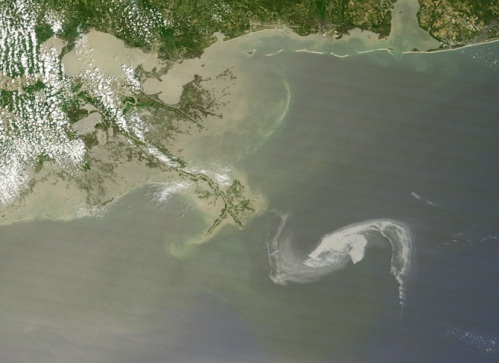
This is not new for us on the upper coast. In 2005 the BP refinery in Texas Coast exploded, killing 15 workers. BP received a record $53 million fine for safety violations. BP agreed that costs were a major factor affecting safety measures at the plant.
AP has reported that prior to this most recent event,
BP suggested in a 2009 exploration plan and environmental impact analysis for the well that an accident leading to a giant crude oil spill — and serious damage to beaches, fish and mammals — was unlikely, or virtually impossible.
The plan for the Deepwater Horizon well, filed with the federal Minerals Management Service, said repeatedly that it was “unlikely that an accidental surface or subsurface oil spill would occur from the proposed activities.”
The company conceded a spill would impact beaches, wildlife refuges and wilderness areas, but argued that “due to the distance to shore (48 miles) and the response capabilities that would be implemented, no significant adverse impacts are expected.”
The potential impact on the ecology of the Gulf Coast is catastrophic. The effect on coastal communities is unimaginable. Following in the footsteps of hurricanes Katrina, Rita, and Ike, the Gulf Coast is hardly prepared for another major disaster. Bolivar and Galveston, for example, are still reeling from Hurricane Ike 18 months ago.
As this tragedy unfolds, I will try to keep posted the links that appear to me to be covering the story most accurately. Language is a tricky thing, and slight changes in wording can dramatically alter the meaning of a statement or story.
Here is an example. The press continues to use the word “spill” to characterize this debacle. This is no spill, it is a blowout. The blowout preventer failed, and now there is unchecked oil and gas jetting to the surface of the Gulf from over a mile down. If officials are unable to recap this well, it will continue to flow until the pressure in the reservoir diminishes to a point where the oil and gas cannot no longer escape.
Ted
NASA Imagery
Field and Stream
Audubon’s Frank Gill’s editorial